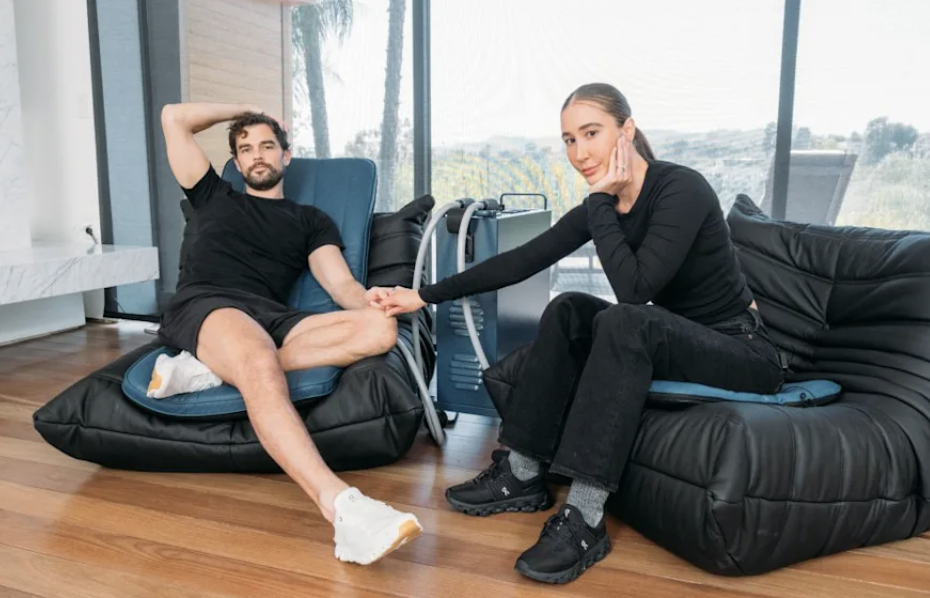Barsoom has over 20 years of experience working at major US financial firms like Morgan Stanley and Merrill Lynch. In 2016, he left Wall Street to start his own company in Colorado. The business is now a multi-million dollar brand.
Once believing that less sleep was the key to success, Barsoom's perspective shifted after years of intense work. He now sleeps 6-8 hours each night.
"My 22-year-old self would have laughed at this," he said, "But now I always prioritize sleep."
 |
CEO Barsoom. Photo: Yahoo Life |
CEO Barsoom. Photo: Yahoo Life
Barsoom's change reflects a broader trend among American business leaders.
A report by the McKinsey Health Institute reveals that the "sleep economy" has surpassed 500 billion USD, as consumers spend heavily on wearable devices, sleep masks, and mattresses ranging from a few thousand to 20,000 USD.
A survey published by Deloitte US in the same year also showed that 41% of adults are willing to spend money to improve their sleep quality, with Gen Z and senior management being the two biggest spending groups.
Sleep is becoming a strategic factor among executives, replacing the "sleep less to succeed" notion that was prevalent in Silicon Valley over a decade ago.
Daniel Ramsey, 47, CEO of staffing firm MyOutDesk, once subscribed to hustle porn - the movement that glorifies non-stop work and views sleep as a waste. He used to admire Jack Dorsey, co-founder of Twitter, who only slept four hours a night, and Elon Musk, who often slept in his office.
"Now everyone understands that's not the way to long-term success," Ramsey said. Despite the demanding nature of his work, he monitors his sleep daily and practices regular rest habits.
"I want to lead, not control. I need to be alert to listen instead of react. When I get enough sleep, things are easier," he said.
Arianna Huffington, CEO of behavior change technology company Thrive, considers preparing for sleep a "sacred ritual" that includes leaving her phone outside her room, drinking chamomile or lavender tea, and reading before bed.
Tom Pickett, CEO of mental wellness platform Headspace, views sleep as essential as exercise or attending board meetings.
"If sleep is affected, everything else goes downhill," he said.
Billionaire Jeff Bezos once stated that he always prioritizes getting eight hours of sleep each night because it helps maintain his energy, improves his thinking ability, and enables effective decision-making in his leadership role.
Dr. Wendy Troxel, a sleep expert at RAND Corporation, noted a significant shift in CEOs' attitudes towards sleep since the early 2000s. She spent the first 10 years of her career convincing people that sleep was necessary, while at that time, it was considered a waste of time.
"Now it's the opposite; anyone who wants to achieve high performance must incorporate sleep into their strategy," she said. However, according to Troxel, sleep is a major challenge for senior leaders, contributing to the booming sleep care market.
CEO Kayla Barnes spent over 11,000 USD on an organic mattress, 2,000 USD on a Faraday cage to block waves, and 10,000 USD to install blackout curtains. She and her husband consider optimizing sleep a part of their lifestyle.
Daniel Ramsey also admitted to once being caught in the vortex of searching for effective sleep devices. He goes to bed at 9:30 p.m., tapes his mouth shut, and has spent tens of thousands of USD, including a 20,000 USD Sleep Number bed.
Amrita Bhasin, 24, CEO of AI application distribution company Sotira, spends about 150 USD per month on sleep masks and blackout curtains. She said she no longer follows the model of sleeping on an air mattress in the office like before. "I want to elevate the priority of sleep," Bhasin said.
Studies have shown that deep sleep helps improve brain function, increase performance, stabilize emotions, and reduce the risk of cardiovascular disease, anxiety, and depression.
"Sleep directly affects judgment and decision-making," said Wendy Troxel, a sleep expert at RAND. "Professional athletes understand that recovery is the line between winning and losing."
Troxel recommends cost-free solutions like reading, journaling, taking warm baths, meditating before bed, avoiding eating within two hours of bedtime, limiting phone use, and maintaining a regular sleep schedule according to one's biological clock.
Ngoc Ngan (Yahoo Life)












